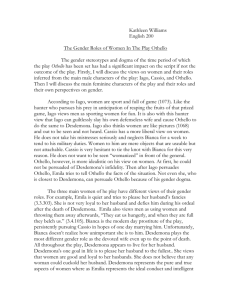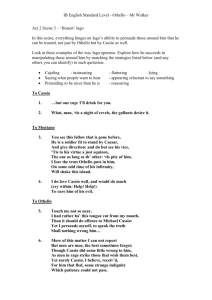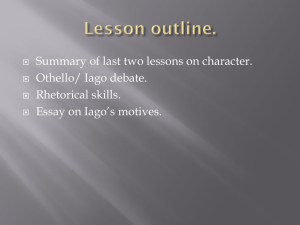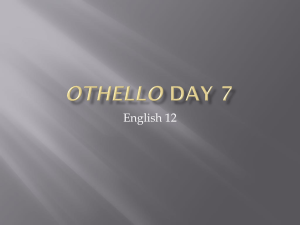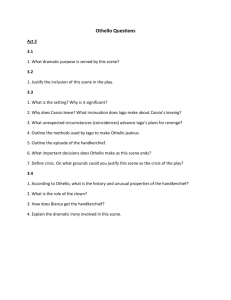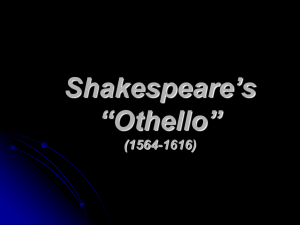Othello
advertisement
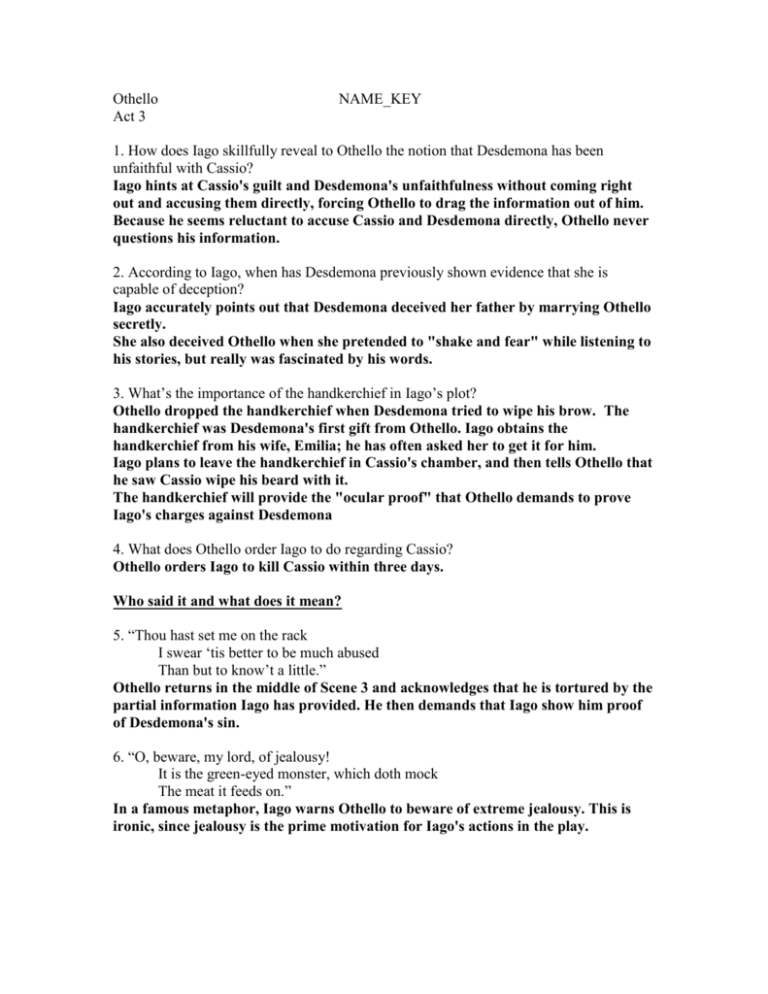
Othello Act 3 NAME_KEY 1. How does Iago skillfully reveal to Othello the notion that Desdemona has been unfaithful with Cassio? Iago hints at Cassio's guilt and Desdemona's unfaithfulness without coming right out and accusing them directly, forcing Othello to drag the information out of him. Because he seems reluctant to accuse Cassio and Desdemona directly, Othello never questions his information. 2. According to Iago, when has Desdemona previously shown evidence that she is capable of deception? Iago accurately points out that Desdemona deceived her father by marrying Othello secretly. She also deceived Othello when she pretended to "shake and fear" while listening to his stories, but really was fascinated by his words. 3. What’s the importance of the handkerchief in Iago’s plot? Othello dropped the handkerchief when Desdemona tried to wipe his brow. The handkerchief was Desdemona's first gift from Othello. Iago obtains the handkerchief from his wife, Emilia; he has often asked her to get it for him. Iago plans to leave the handkerchief in Cassio's chamber, and then tells Othello that he saw Cassio wipe his beard with it. The handkerchief will provide the "ocular proof" that Othello demands to prove Iago's charges against Desdemona 4. What does Othello order Iago to do regarding Cassio? Othello orders Iago to kill Cassio within three days. Who said it and what does it mean? 5. “Thou hast set me on the rack I swear ‘tis better to be much abused Than but to know’t a little.” Othello returns in the middle of Scene 3 and acknowledges that he is tortured by the partial information Iago has provided. He then demands that Iago show him proof of Desdemona's sin. 6. “O, beware, my lord, of jealousy! It is the green-eyed monster, which doth mock The meat it feeds on.” In a famous metaphor, Iago warns Othello to beware of extreme jealousy. This is ironic, since jealousy is the prime motivation for Iago's actions in the play. 7. “I had rather be a toad And live upon the vapor of a dungeon Than keep a corner in the thing I love for others’ uses.” In another vivid metaphor, Othello reveals the disgust he feels at having to share Desdemona. This quote adds another animal reference. As Scene 3 progresses, the animal references become more frequent, and Othello becomes more bestial as he succumbs to Iago's influence. 8. “I am your own forever.” In the final line of Scene 3, Iago pledges loyality to Othello, who has just made him his lieutenant. Othello has just ordered Iago to murder Cassio, and he has decided to kill Desdemona. He is completely under the influence of Iago. At this point in the play, Iago has accomplished his goal. His motives for going further with his evil are the subject of much criticism. This quote is also somewhat ironic, because Othello is really Iago's "own" for the rest of the play.



